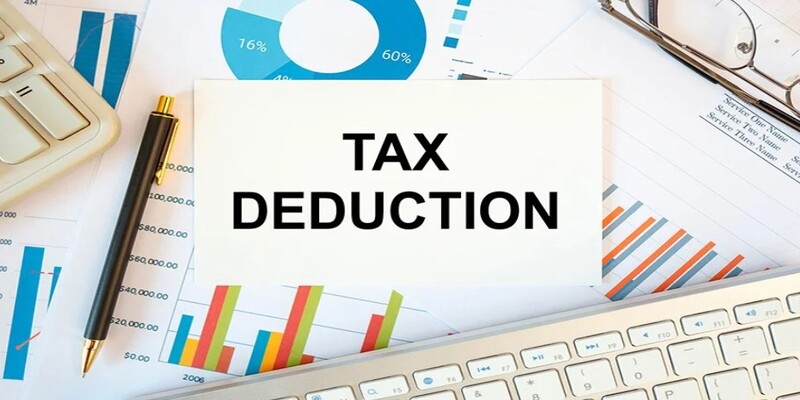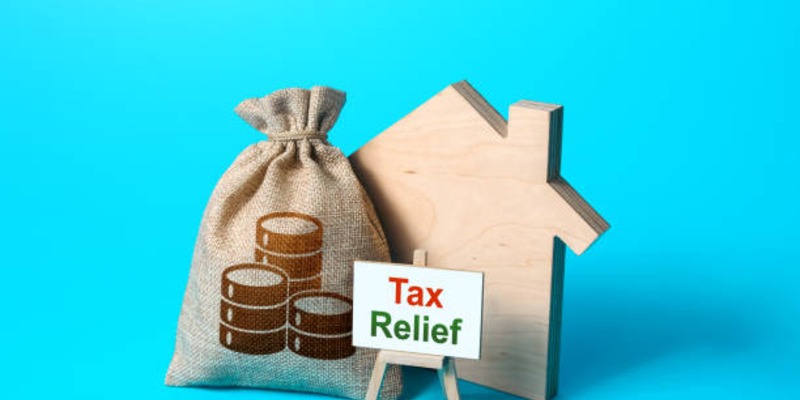Dispelling Myths: The Truth About Common Tax Misconceptions
Oct 11, 2023 By Triston Martin
Taxes permeate every aspect of our lives, pivotal in shaping economies and sustaining crucial public services. Yet, taxation is often cloaked in a fog of Myths and misunderstandings that can sow confusion and financial missteps.
In this all-encompassing guide, our mission is to systematically dismantle some of the enduring and deeply ingrained Tax Myths that have endured through the years. Through this journey, we aspire to arm you with a profound comprehension of this Myth, empowering you to traverse the intricate terrain of taxation with newfound clarity.
By dispelling these misconceptions, you'll be better equipped to chart your financial course, make sound fiscal choices, and securely navigate the labyrinthine world of taxation.
Myth vs. Reality
Navigating the complex world of taxes requires a clear understanding of common misconceptions. Let's start by debunking some widespread Tax Myth.
Myth: All Tax Refunds Are Free Money
One of the most prevalent Tax Myths is the belief that a tax refund is akin to a financial windfall. Many people view it as "free money" they can spend without consequence. In reality, a tax refund is not free money at all. It represents an overpayment of taxes throughout the year.
When you receive a refund, you give the government an interest-free loan. To maximize your financial situation, adjusting your withholding and aiming for a smaller refund while putting the extra money to work through investments or debt reduction is essential.
Myth: Tax Evasion and Tax Avoidance Are the Same
Tax evasion and tax avoidance are often used interchangeably but fundamentally different concepts. Tax evasion is illegal and involves deliberately underreporting income or inflating deductions to reduce tax liability. In contrast, tax avoidance is the legal practice of using legitimate methods and strategies to minimize tax liability.
Tax avoidance, being a legitimate practice, remains within the boundaries of the law. In contrast, tax evasion can result in significant consequences, such as substantial fines and potential imprisonment. Understanding this distinction is crucial to ensure you stay on the right side of the law while optimizing your tax situation.
Filing Status and Deductions

Your choices concerning your Filing Status and deductions can substantially impact your tax liability. Let's explore these key aspects in more detail.
Myth: You Must Be Married to File Jointly
Many people believe that only married couples can file their taxes jointly. This is not true. The tax code allows married individuals to file jointly or separately, depending on their financial circumstances. In some cases, filing jointly can result in a lower tax bill. Still, it's essential to consider your situation and consult a tax professional to determine your best Filing Status.
Myth: All Deductions Are Created Equal
It's a common misconception that all tax deductions are equally valuable. While deductions can lower your taxable income, their impact varies based on your tax bracket and the specific deductions you qualify for.
For instance, a deduction that saves a high-income earner $1,000 may only save a low-income individual $100. Understanding the value and eligibility criteria for different deductions is crucial to maximizing your tax planning efforts.
Self-Employment and Small Business
For Self-Employed Individuals and small business owners, understanding tax obligations is vital. Let's clarify the Myths and realities in this realm.
Myth: Self-Employed Individuals Don't Pay Taxes
Some people mistakenly believe that Self-Employed Individuals can avoid paying taxes altogether. This is a significant misconception. In actuality, Self-Employed Individuals are responsible for addressing income and self-employment taxes, thereby contributing to the funding of critical programs such as Social Security and Medicare.
Moreover, Self-Employed Individuals must make quarterly estimated tax payments to cover their liability. Ignoring these obligations can lead to penalties, and a hefty tax bill come tax season.
Myth: Small Business Owners Can Deduct Personal Expenses
Another common misconception among small business owners is that they can deduct all personal expenses as business expenses. While there are legitimate deductions for business-related expenses, attempting to write off personal expenses as business-related can trigger an audit and result in penalties.
Small business owners should maintain meticulous records and only claim deductions that are genuinely related to their business activities.
Investment and Retirement

Investing and planning for retirement involves tax considerations that can't be ignored. Let's delve into the truth behind common Tax Myths in these areas.
Myth: All Investment Gains Are Taxed Equally
Many investors believe all investment gains are subject to a uniform tax rate. However, in practice, the taxation of investment gains is a nuanced process influenced by several factors. These factors encompass the nature of the investment, the duration of your investment holding, and your overall income level.
Long-term capital gains, for instance, frequently benefit from more favorable tax rates, providing potential tax advantages. On the contrary, short-term gains may be subject to taxation at your regular income tax rate, which can be considerably higher. To make the most of your investments, it is essential to comprehend these varying tax implications and their impact on your after-tax returns.
Myth: You Can't Touch Retirement Funds Until You Retire
While it's true that retirement accounts such as 401(k)s and IRAs are designed to provide income during retirement, there are circumstances where you can access these funds before you retire. For example, you can make penalty-free withdrawals for qualified education expenses, first-time home purchases, or certain medical expenses.
However, these withdrawals may still be subject to income tax. Understanding the rules and penalties associated with early withdrawals can help you make informed financial decisions.
Conclusion
In the world of taxes, misinformation, and Myths can lead to financial missteps and missed opportunities. By debunking these prevalent Tax Myths, you can better understand your financial choices, improve your tax circumstances, and uphold adherence to tax regulations.
Remember that taxes are a complex but integral part of our financial lives, and seeking guidance from tax professionals is always a smart move. Don't let Myth hold you back; empower yourself with accurate tax knowledge and take control of your financial future. With this enhanced information and guidance, you can maximize your financial journey while minimizing tax-related stress.
-
 FinTech Sep 22, 2024
FinTech Sep 22, 2024OCC Studies Bank-Fintech Partnerships: Risks and Implications
To improve regulatory standards, the OCC is scrutinizing data security, compliance and operational inefficiencies in fintech and bank partnerships.
-
 Mortgages Oct 11, 2023
Mortgages Oct 11, 2023Unveiling the Mystery Behind Mortgage Interest Deduction
Dive into this article to explore what is Mortgage Interest Deduction (MID), the people who can benefit from it, and how it ensures financial stability.
-
 Taxes Dec 18, 2023
Taxes Dec 18, 2023Comprehensive Guide: Steering Clear of Capital Gains Tax in Real Estate
Maximize your real estate profits by understanding and strategically navigating capital gains tax. Our comprehensive guide offers insights on tax-efficient real estate transactions and strategies. Empower yourself with knowledge, make informed decisions, and secure your
-
 Know-how Dec 18, 2023
Know-how Dec 18, 2023Domestic Asset Protection Simplified: Financial Security Unveiled
Discover the importance of a Domestic Asset Protection Trust (DAPT) in safeguarding your assets. Learn how a DAPT works, its benefits, and strategies for maximizing its protections. Explore the role of jurisdiction and the value of professional advice in crafting a successful DAPT.
